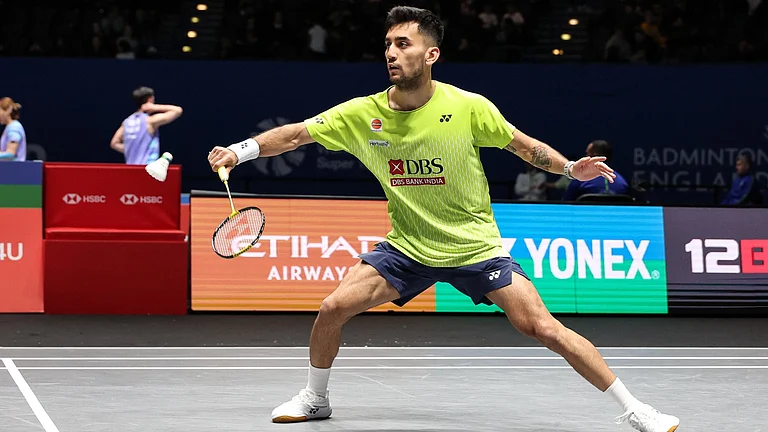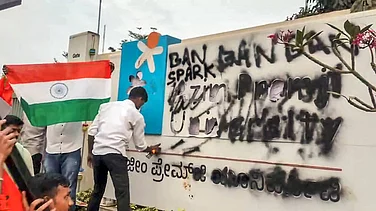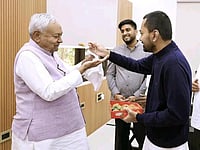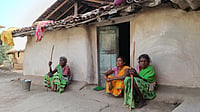Of late, the term “Love Jihad” has been grabbing media headlines in Jharkhand. A quick Google search with 'Jharkhand Love Jihad' will open to several news reports and two of these headlines, that recently caught my eyes: “Jharkhand me saal bhar me love jihad ki darjan bhar ghatnaein” (A dozen cases of love jihad registered in Jharkhand within a year), dated December 25, 2022, and “Love jihad ka garh ban raha hai Jharkhand?” (Is Jharkhand turning into a hotspot for love jihad?” dated December 26, 2022.
However, before August 2014, news reports about love affairs between two communities and the breach of promise, harassment or forced religious conversion cases linked to them did not carry headlines mentioning “Love Jihad". In fact, people of the state were largely unaware of the term.
It all began with a case registered at the beginning of August 2014 in Ranchi’s Hindpiri Police Station. National-level shooter Tara Shahdeo and Ranjit Singh Kohli got married on July 7, 2014, at the Radisson Blu Hotel in Ranchi with Hindu rituals. A month later, Shahdeo filed a case against Kohli, accusing him of harassing and pressurizing her to change her religion. Kohli and her mother both were arrested and sent to prison. Currently, the mother-son duo is out on bail, but the case is dragging on in court, even after nine years. A CBI court is hearing the case now.
But how did the FIR filed by Shahdeo turn into a 'Love Jihad' scandal? Senior crime reporter Akhilesh Singh, who covered the case, said: “This was a very small news item, but the national electronic media gave it wide coverage in the name of love jihad and it became big news. After this, even the Jharkhand newspapers and media started covering it under the same pattern. Complaints of marriage under false pretexts or hiding the real name, cheating or through religious conversions were filed even before 2014 but they were not dubbed as love jihad. This trend began here with the Shahdeo-Kohli case.”
Singh said that even though the police or administration never call such cases 'Love Jihad' in their press notes or statements, the media has no qualms about using this term indiscriminately.
Even Shahdeo’s cousin Rishi Nath Shahdeo – who is the state convenor of the Hindu Jagran Manch – admits that he had never heard of 'Love Jihad' in Jharkhand before 2014. However, he has his own argument in this regard: “My sister was told ‘You are no longer Tara, but Sara, and that you will have to undergo a nikah (Islamic marriage).’ Although the nikah did not take place, she was pressurized to convert. There is a simple definition of love jihad: if a Muslim man hides his identity or adopts a Hindu name to marry a Hindu woman, this is love jihad. Ranjit Singh’s real name was Raqibul Hassan, and he was getting married by hiding his name.”
Politics over the 'Love Jihad' issue gained significant traction in Jharkhand, as the BJP and its allied organizations raised the issue in the media with much gusto. In the Jharkhand assembly elections held three months after the (Shahdeo) incident, the BJP came to power with a full majority for the first time in the state.
Senior journalist Ravi Prakash believes that political parties could again use issues such as love jihad in the upcoming state elections. He says, “The term first appeared in Jharkhand nine years ago. BJP leaders highlighted it, even though it did not have much impact in those elections. However, in the 2024 assembly polls, this issue will again be raised for political gains and it may have an effect because the mindset of a large section of Jharkhand’s population has successfully been changed in the last few years by harping on love jihad."
In Jharkhand, it is usually the love affairs between a Muslim boy and Hindu girl which are dubbed as 'love jihad', but recently, Muslim and Adivasi relationships are also being clubbed under the issue.
The headline dated December 25 clubbed one such incident from December as part of the “dozen love jihad cases” of the year. This case about the murder of 23-year-old Rabika Paharia of Sahibganj district, hailing from the particularly vulnerable tribal group (PVTG) Paharia, attracted significant media attention. Rabika’s Muslim partner Dildar Ansari and his parents were arrested on murder charges. The incident laid bare the fault lines between the Adivasi and Muslim communities in the region.
Adivasi activist Aloka Kujur focuses on the case’s potential impact on the elections. She says, “Now 'love jihad' is being turned into a Muslim versus Adivasi issue so that the traditional affinity between the two groups can be broken and a breach initiated. The Rabika case is a heinous crime. Many girls marry for love, but subsequently, the marriage does not survive. Often the men in such cases abuse their partner or even resort to killing them. But we need to call this a crime, and not love jihad. This type of violence highlights the patriarchal mindset of the society, which gives birth to the violence and needs to be weeded out.”
She adds, “Love has occurred in every era. People from different religions, sects, castes and languages fall in love and marry each other. But now the right wing wants to trigger bigotry among the youth against such marriages in the name of love jihad. Young people are being scared against marrying into a different religion, caste or community. I want to ask, is it just Muslims who are marrying Adivasi girls? Hindus do it too, and many of those marriages do not survive. But nobody calls this love jihad.”






















